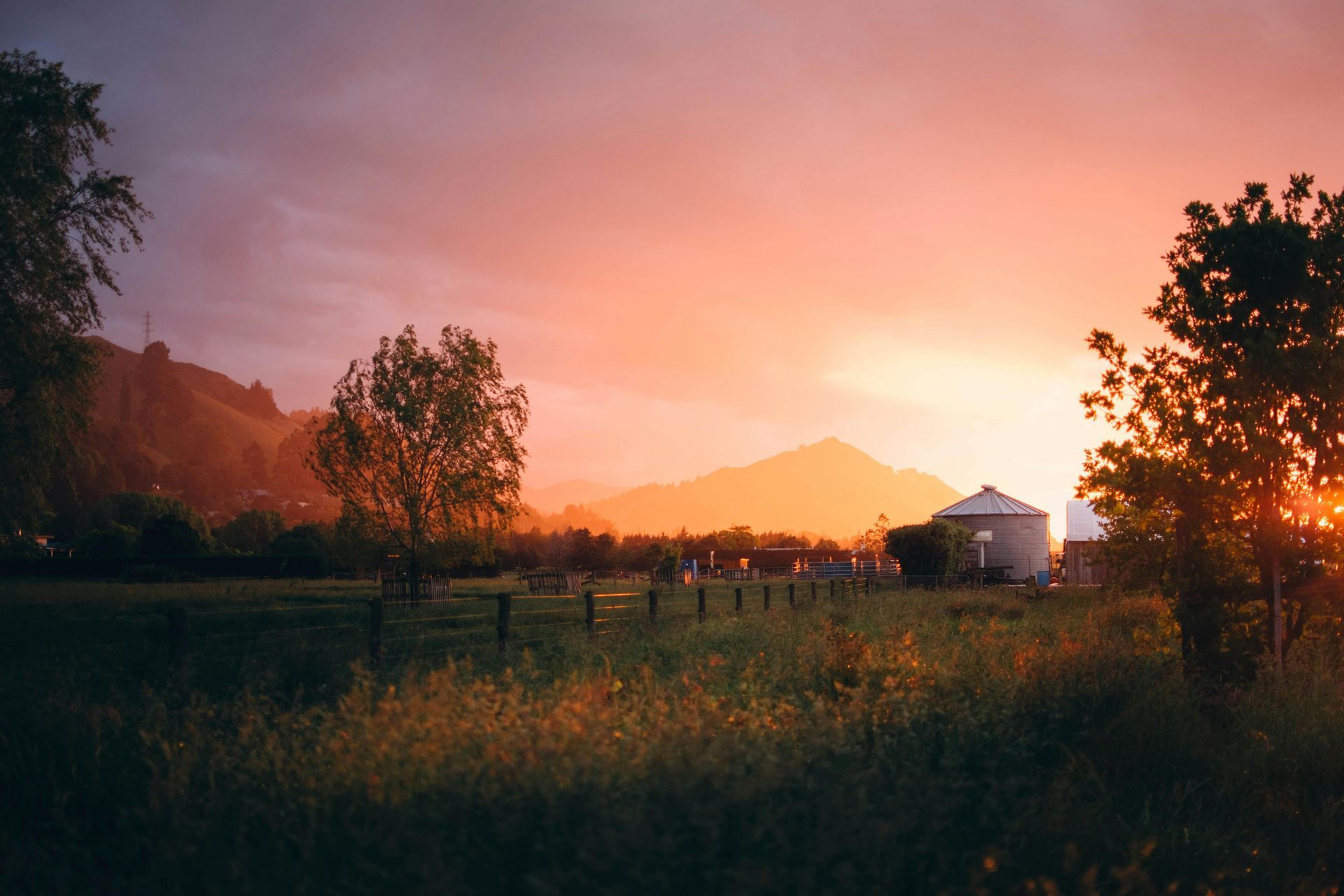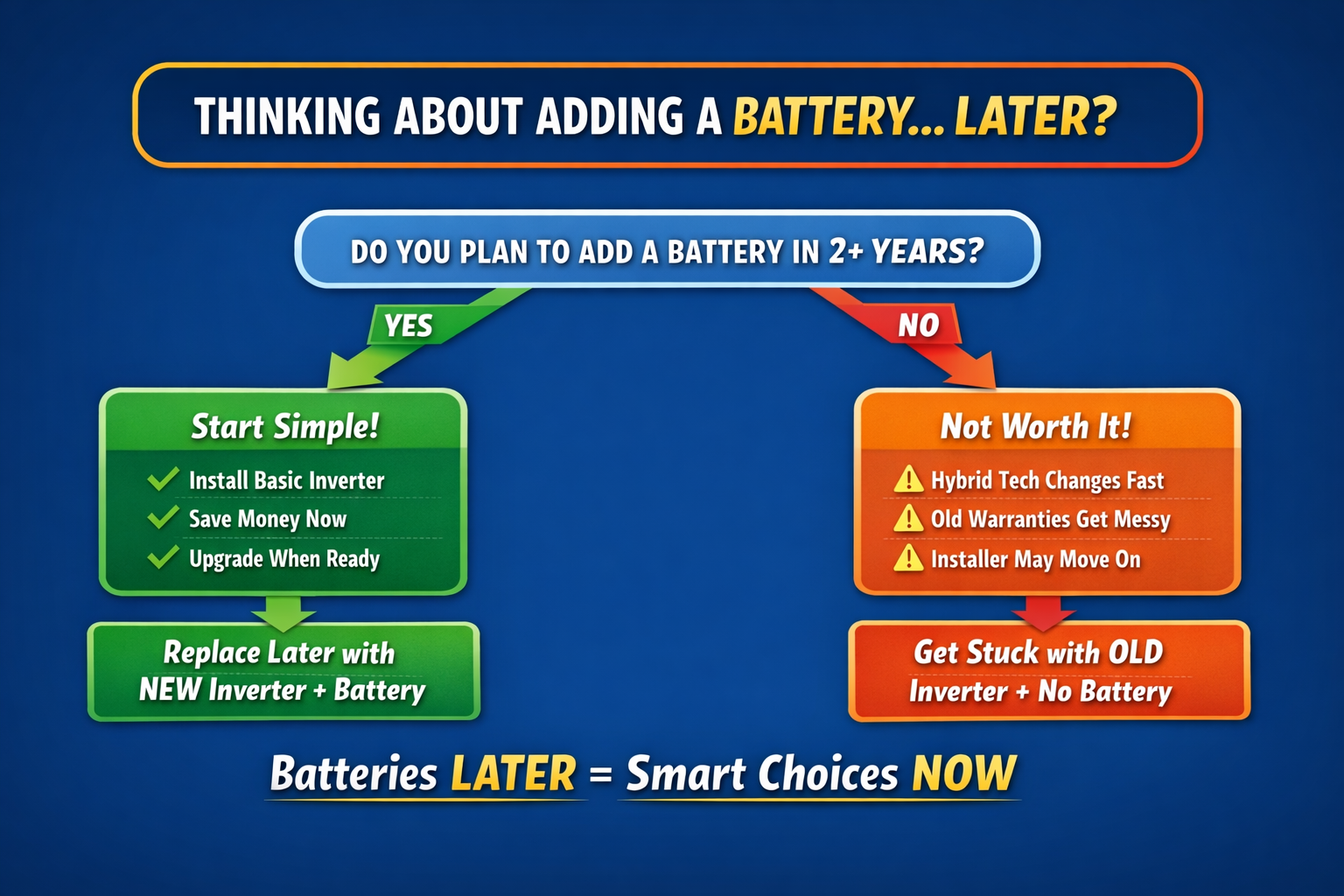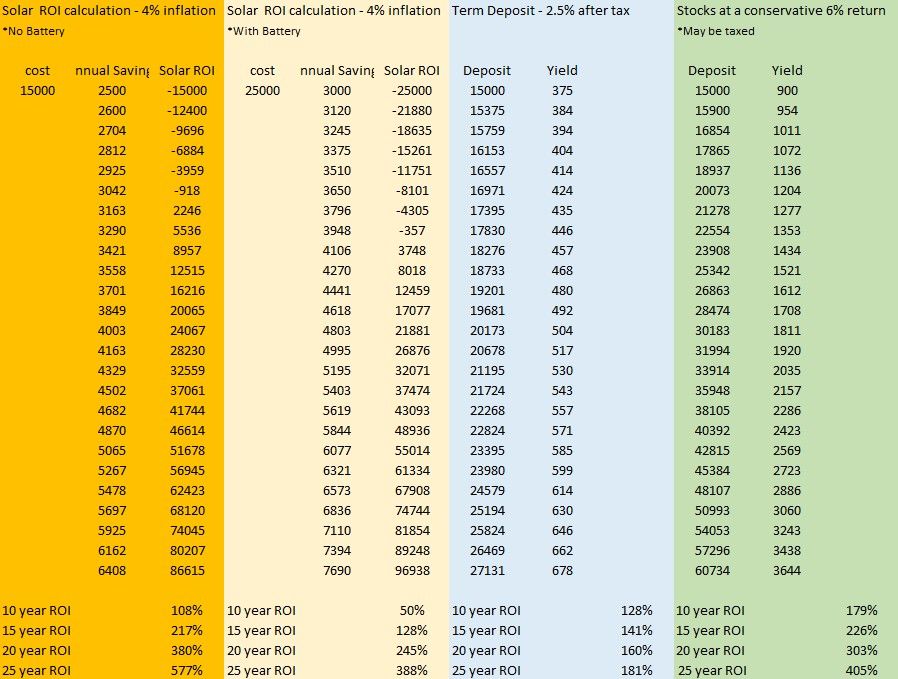Every now and then someone says: “What if I just got a bigger solar system and went totally off-grid?”
It sounds romantic, right? No more power bills. No lines company. Stick it to the man.
But here’s the thing:
off-grid is a b**** compared to having town supply.**
Winter: The Elephant in the Room 🐘
Take the 26-panel system we quoted with 20kWh of batteries. In summer it’s a dream — plenty of juice, batteries full, maybe even enough left over to run the neighbour’s spa pool.
But in winter? Those same panels will only produce about 33% of the home’s energy needs. That’s not a gap you can shrug at — that’s a canyon.
To cover it, you’d need about
three times more panels.
Problem is: your roof doesn’t have the space.
So, What’s the Alternative?
Ground-mounted solar. Think 50 panels, chewing up lawn space and making your backyard look like NASA’s testing site.
Oh, and don’t forget a diesel generator for the dark, gloomy days when even 50 panels and batteries can’t keep the lights on.
The Bill Shock 💸
Here’s where it really stings:
- A setup like that would cost about $80,000.
- Off-grid systems also earn the solar company more margin, because they know they’ll be coming back for maintenance, tweaks, and troubleshooting. (Batteries and generators aren’t exactly “set and forget.”)
- Generator energy? About $1.20 per kWh. That’s five times more than what you currently pay the grid.
Suddenly that “no power bill” dream looks more like an “eternal bill” nightmare.
The Hidden Value of Staying Connected
When you’re on-grid, you’re not just using power — you’re also selling it back in summer when your system overproduces. Those credits help offset line charges. Go off-grid, and you lose that income stream entirely.
In other words: the grid is like your cheap backup generator, but without the diesel fumes and repair bills.
So, What’s the Takeaway?
Going off-grid sounds bold, but unless you’re building a bach in the bush with no access to lines, grid-connected solar is by far the smarter play.
- It costs less up-front.
- It delivers more consistent savings.
- It uses the grid as your safety net.
Put simply:
👉 Off-grid is for people who have to.
👉 On-grid is for people who want to save money.
And let’s be honest — you’re probably in the second camp.
⚡ Want a solar setup that makes financial sense? That’s exactly what we do. We cut through the hype and design systems that actually work for Kiwi homes — without the $80k science experiment.



